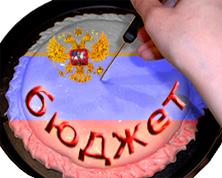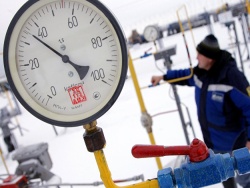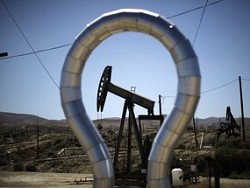
Over the last two days were the results of two public opinion surveys on the social situation in the country.
The first was carried out by “Russian center for public opinion research”, the second “Levada-center”. The first gives the following data. 42% of Russian families claim that their financial situation has deteriorated significantly over the past year, among them 40% complain of difficulties in the labour market. What is striking in this poll is that nearly half of respondents hope for state support. But the Russian government is unable to provide such support, as the expenditures on social programs were reduced by approximately 10%. This primarily was due to lower world prices of oil and gas. It is known that the revenues from the export of these natural resources contributed up to 50% of state budget revenues.
According to Russian sources, the decline in oil prices by one dollar is depriving the Russian budget of $ 2.5 billion. Therefore, any serious decline in prices affecting economic growth, size of GDP, state budget, financial support of government social programs, as well as on the exchange rate of the national currency. Russian experts admit that the policy of economic diversification and counter Western sanctions have not yielded tangible results.
Last year, the Federal state statistics service reported that the purchasing power of Russians fell by 9% amid rising prices for goods and services and lower real incomes, the growth of which was last observed in the fall of 2014. In this regard, the Ministry of economic development of Russia predicts a continuation of this trend until 2018. In accordance with the estimates of the former Minister of Finance Alexey Kudrin, the real incomes of citizens in 2016 will fall by about 7% and real wages by 10%. This trend will also affect nominal wages and pensions. According to various sources, 40-45% of households are families with a few retirees, and the pension is an important part of the total income.
Pension payments are a kind of “safety cushion” in case of loss of help from the younger members of the family, and when there are difficulties with the employment. Thus, due to the higher inflation it turns out that the government does not increase pensions, which increases the risk of growing poverty and worsening social situation of many families in Russia. According to official statistics, the number of poor increased by 3%, while the number of citizens living below the poverty line, has reached 23 million, representing 16% of the total population (143 million people). This figure, of course, smaller than the one that was in the 90-ies of the last century: then it was equal to 29% of the total population. The situation is complicated by the fact that according to unofficial estimates 55-60% of the population lives on the subsistence level.
Many Russian economists warn that the social and economic crisis will worsen in the coming years, when the government will be unable to spend large sums on social programmes and support for families with low income due to declining revenues from exports of oil and gas. However, this did not prevent the Russian government to provide in the draft budget for 2016 military spending is five times greater than spending on social programs. Economists say that during the global economic crisis of 2008, the government did not allow the decline in real incomes of vulnerable citizens, but now the situation is different.
The second survey conducted by “Levada-center”, it shows that 90% of Russians are sure that there is stratification between the poor and the rich, 40% of them believe that it greatly increased. According to official data, the difference in income between rich and poor comes to 16.8 times. This figure is 1.6 times higher than the limit set by the United Nations. According to unofficial sources, quoted in the newspaper “Novye Izvestia”, the gap could reach 40-50 times, and even more if we take into account the revenues and profits of the so-called oligarchs. Therefore, some have described the current system as “state-monopoly oligarchic capitalism”. Some characters of the Yeltsin era gave way to new, but the layer of the oligarchy is preserved and was completely subordinated to the Kremlin. The Union of oligarchs and the public sector in recent years has increased significantly.
In such social conditions, as illustrated by public opinion polls, there is no doubt that citizens “dream” about changing the current position in the coming months. Some hope that changes will follow, after the parliamentary elections in September of this year, and more attention will be paid to social aspects. However, in the current environment where the government is not willing to make the oligarchs to social responsibility, these dreams are unattainable.








